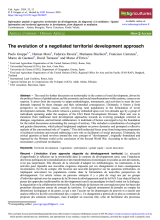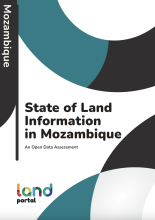Land Library Search
Through our robust search engine, you can search for any item of the over 73,000 highly curated resources in the Land Library.
If you would like to find an overview of what is possible, feel free to peruse the Search Guide.
/ library resources
Showing items 1 through 9 of 4966.Dans les zones rurales, où l’agriculture est la principale source de subsistance, la terre est bien plus qu’une simple ressource économique ; elle est essentielle à l’identité et à la culture des communautés.
Les fiches « Analyse des cadres juridiques et institutionnels » du CTFD fournissent par pays, un état des lieux des dispositifs organisant le foncier et l’accès aux ressources naturelles (renouvelables ou non), et en étudient les liens avec les processus de décentralisation à l’œuvre dans les dif
This one-pager provides details on the LAND-at-scale project in Egypt. This project is implemented by GIZ Egypt, and financed by the Ministry of Foreign Affairs via the Netherlands Enterprise & Development Agency (RVO).
Land information is critical for equitable land governance that benefits the most vulnerable and drives economic growth, sustainable development, and food security.
The need for further discussion on territoriality in the context of rural development, driven by the political forces of globalization and the economic and social transformations within nations, comes as no surprise.
This study addresses the significant issue of land fragmentation in Ethiopia, which is characterized by small, irregular, scattered parcels with no or adequate road access.
Land rights are fundamental sources of tension in Liberia, so transparency about land information is both essential and highly politicized.
In Mozambique, the law recognizes certain forms of occupation as constituting legal tenure and nationals can claim this recognition of their right to occupy and use land allocated through customary norms/practices.
Em Moçambique, a lei reconhece certas formas de ocupação que constituem posse legal e os(as) cidadãos(ãs) podem reivindicar esse reconhecimento de seu direito de ocupar e usar a terra alocada por meio de normas/práticas costumeiras.







